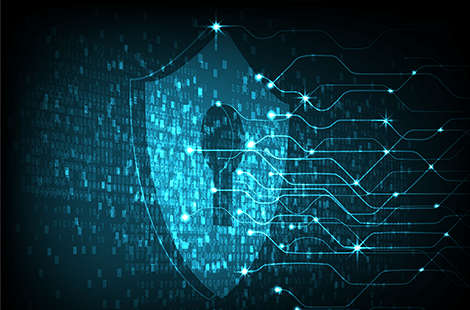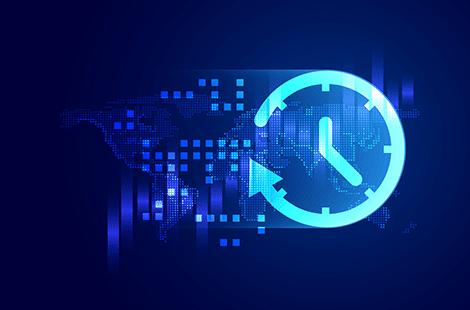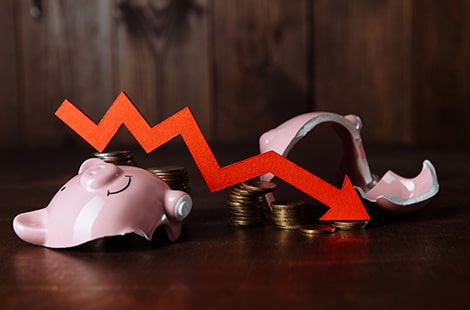Did you know? Every year, counterfeit goods worth between $1.7 trillion and $4.5 trillion are sold, positioning counterfeiting as comparable to the tenth largest economy globally. In the modern era, emerging technologies play a dual role; they offer innovative tools to combat fraud and counterfeiting, but they also enhance the capabilities of criminals to violate intellectual property rights and distribute fake products. Innovations such as QR codes, NFC chips, and proprietary tracking software have transformed the landscape of brand protection. However, despite these advances, many still regard counterfeiting as an unavoidable expense or believe that the cost of brand protection outweighs the benefits.
The impact of counterfeiting is profound, matching the scale of major national economies and resulting in the loss of an estimated 2.5 million jobs globally. The United States feels these effects acutely, with American consumers responsible for purchasing 60% to 80% of all counterfeit products. This widespread issue significantly undermines consumer trust in brands and online marketplaces alike.
In response, brands have developed several effective strategies to combat these challenges. Implementing GPS technology and unique coding systems improves the traceability of products throughout the supply chain, enhancing both security and transparency. Advanced anti-piracy algorithms and extensive tracking networks enable brands to detect and act on IP violations, which is especially vital for startups whose value is often tied closely to their intellectual property. Additionally, sophisticated digital printing technologies facilitate the creation of dynamic, serialized codes on products and packaging, aiding in authentication and traceability. Moreover, cutting-edge security measures like invisible pigments, embedded QR codes, NFC chips, and NFTs are employed to ensure product integrity from manufacturer to end-user.
While counterfeiting poses significant challenges, proactive brand protection strategies empower companies to safeguard their products and enhance consumer engagement, and gather valuable business intelligence across their supply chains.
A checklist of the most Counterfeited Brands
Counterfeit products have emerged as a booming industry with an annual turnover estimated at $2 trillion, up significantly from $464 billion in 2016, according to the OECD. The sophistication of these counterfeit items has evolved to include high-quality fakes of products ranging from everyday apparel to critical medical supplies and construction materials, making it nearly impossible to distinguish them from genuine items.
Given this stark reality, one must question the efficacy of current brand protection measures: Is your brand truly secure without rigorous anti-counterfeit strategies?
The surge in the online counterfeit market is driven by consumers’ desire for branded goods at lower prices, providing fertile ground for counterfeiters. This rampant counterfeiting poses severe threats to brand owners, impacting their revenue, market share, and reputation severely. Additionally, the risks extend to consumers, with counterfeit electronics alone linked to over 70 deaths and 350,000 serious injuries annually in the United States. Beyond physical harm, the potential for financial fraud and the ethical implications of indirectly supporting organized crime are significant.
Industries most affected by Counterfeit Products
Footwear
Dominates with 22% of all seized counterfeit goods globally, reflecting the vast market for fake shoes.
Clothing
Accounts for 16%, indicating a large volume of counterfeit apparel.
Leather Goods
Comprising 13%, highlighting a significant issue with counterfeit bags and accessories.
Electrical Equipment
Represents 12% of seizures underscoring the safety risks associated with fake electronic devices.
Watches
At 7%, there is a high demand for prestigious, yet counterfeit, timepieces.
Medical Equipment
5% of the counterfeit market, stressing the dangers of fraudulent medical devices.
Perfumes & Cosmetics
Also at 5%, the use of harmful ingredients in counterfeits can pose health risks.
Toys
Making up 3%, indicating concerns over safety and intellectual property infringements.
Jewelry and Pharmaceuticals
Each holds 2%, pointing to risks in luxury goods and critical health impacts from fake medicines.
Other Industries
Comprise the remaining 13%, showing the broad scope of counterfeiting affecting various sectors.
Brands most frequently Counterfeited Online
Footwear
YEEZY, Nike Air Jordan, Nike, Converse, Vans, Adidas, Timberland, Puma, New Balance, Fila
Luxury Goods
Louis Vuitton, Gucci, Balenciaga, Maison Margiela, Stone Island, Dior, Lacoste, Alexander McQueen, Prada, Diesel
Watches
Rolex, Patek Philippe, Omega, Cartier, Hublot, Audemars Piguet, Breitling, Tiffany, Panerai, Tag Heuer
Handbags
Gucci, Chanel, Louis Vuitton, YSL, Telfar, Michael Kors, Hermes, Dior, Balenciaga, Prada
Tech Products
Apple iPhone, Apple Watch, Dyson Airwrap, Nintendo Switch, iPad, Ring Doorbell, Xbox Series X, Beats Headphones, Peloton, Xbox Series S
Beauty Products
Foreo, Charlotte Tilbury, Olaplex, Too Faced, Urban Decay, La Mer, Anastasia Beverly Hills, Le Labo, Bareminerals, Dr Jart
Strategies for Brand Protection
To combat the escalating threat of counterfeits, companies must adopt proactive brand protection strategies. These include establishing dedicated brand protection teams, partnering with online marketplaces to remove counterfeit listings, and leveraging advanced authentication and supply chain monitoring technologies. Educating consumers about the differences between genuine and counterfeit products, along with the associated risks, is crucial.
If proactive steps are not taken, both brands and consumers face significant safety and security risks. Therefore, it’s crucial to ask: If you are not actively combating counterfeiting, is your brand truly safe?
5 Most Counterfeited Products in the US
Counterfeit products are a significant problem, especially during the holiday season when consumers are on the hunt for great deals on gifts. Buying counterfeit items may seem harmless, but 87% of consumers who have purchased fake products report experiencing adverse consequences, including financial losses, illness, and injury. As holiday shopping picks up, it’s crucial to be aware of the products that are most likely to be counterfeit. Here are the five most counterfeited products in the USA that shoppers should watch out for:
Footwear
Footwear tops the list of counterfeited products worldwide. During the holiday season, counterfeiters capitalize on high demand by creating poor-quality copies of popular brands, often using substandard materials. Consumers looking for deals on shoes should be vigilant for signs of counterfeit, such as minor design flaws, and are advised to only purchase from authorized retailers.
Clothing and Textiles
In 2022, U.S. Customs and Border Protection seized over $30 million in counterfeit clothing items including luxury brands like Nike, The North Face, and Canada Goose. Shoppers should be cautious of unusually low prices, typographical errors on labels, and overall quality that doesn’t match the brand standards.
Electronics
Electronics are high-value targets for counterfeiters, particularly during the gift-giving season. Fake electronics fail to meet performance standards and pose severe safety risks. Consumers should compare prices and specifications with those listed on the manufacturer’s official site and avoid using suspicious products that could be harmful.
Watches
Counterfeit watches are widespread, with fakes often featuring incorrect model numbers and making unexpected noises. Prices that seem too good to be true usually are, particularly when it comes to luxury watch brands. Prospective buyers should educate themselves about the specific hallmarks of authenticity associated with the brand they wish to purchase.
Perfumes and Cosmetics
The cosmetics industry suffers from a proliferation of fake products that may contain harmful chemicals and biohazards. Differences in packaging, texture, and smell are key indicators of counterfeit goods. Shoppers are encouraged to stick to reputable sources when buying perfumes and cosmetics.
The implications of buying counterfeits extend beyond poor product performance and can include serious health and safety risks. With counterfeit goods costing the global economy up to $250 billion annually, the issue is widespread and growing. Despite the best efforts of U.S. Customs and Border Protection, which sees only a fraction of fake products entering the country, the problem persists.
As consumers, staying informed about the risks and signs of counterfeit products is crucial, especially during high shopping seasons. Purchasing from reputable, authorized sellers and staying vigilant about product quality and pricing can help mitigate the risks associated with counterfeit goods.
How Ennoventure can shield your Brand from Counterfeiting
As the threat of counterfeiting continues to escalate, impacting consumer safety and brand integrity, it is crucial for companies to adopt robust measures to protect their products. Ennoventure stands at the forefront of the fight against counterfeiting with its cutting-edge anti-counterfeiting solutions designed to safeguard brands across various industries.
At Ennoventure, we understand that each brand faces unique challenges in protecting its products from counterfeiters. Our approach combines innovative technology with deep market insight to deliver custom solutions that effectively address these challenges. We utilize advanced cryptographic technologies embedded within the packaging design that are invisible and non-intrusive, ensuring they do not alter the brand’s aesthetics. These cryptographic signatures can be authenticated using a simple smartphone app, making it easy for companies and consumers alike to verify the authenticity of products in real-time.
Our solutions are designed to be seamlessly integrated into your existing production lines, with minimal disruption to the manufacturing process. This integration helps maintain the efficiency of production while adding an essential layer of security. Ennoventure’s technology deters counterfeiters while providing valuable data insights, allowing brands to track their products throughout the supply chain and gain detailed analytics on market trends and consumer behavior.
By partnering with Ennoventure, brands can protect themselves from the financial and reputational damage caused by counterfeits while enhancing consumer trust and loyalty. Our commitment to innovation and excellence makes Ennoventure’s solutions the most effective choice for brands looking to combat the sophisticated threat of counterfeiting in today’s global marketplace.




